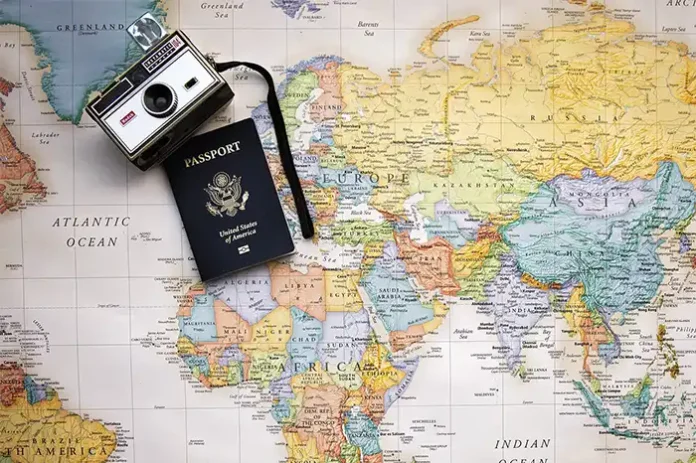Today’s travel industry is fiercely competitive, with small travel businesses often competing against bigger companies with hefty budgets and broad brand recognition. However, for these smaller entities, expanding their customer base is not just about having enough resources—it revolves around designing and implementing sharp PR strategies that boost their visibility and stir up interest.
Despite these hurdles, there is a lot of potential in the travel sector. Projected increases in global travel and tourism revenue—from $916.3 billion in 2024 to $11.1 trillion by 2029—illustrate opportunities for small brands to make their mark in a thriving industry. By adopting aggressive, forward-thinking PR, these brands can attract new customers and build trust. With travelers increasingly looking for unique experiences, small brands are well-positioned to capture attention with the right strategy.
In this article, we’ll delve into six key PR tactics for small travel businesses aiming to expand their customer base. From collaborating with sector experts to tapping into endorsements, all strategies are designed to help small enterprises effectively engage with their desired audiences in a genuine and impactful way.
6 Travel Marketing Strategies for Small Businesses
1. Collaborate With a Specialized Travel Marketing Agency
A smart strategy for a small travel business is to team up with a reputable travel marketing agency that specializes in public relations. These travel marketing agencies are seasoned with years of know-how and have strong links in the travel press. They know how to make a brand appealing and craft public relations strategies that are in line with the latest trends and the right customer groups.
Hiring a travel-focused PR agency offers critical insights into what consumers want, helping to devise campaigns that hit the mark with potential travelers. Working with a seasoned agency allows access to effective PR tactics that really make a difference. These agencies have the scoop on which media outlets and reporters to pitch for articles in influential publications. They also excel in navigating the travel sector’s specific challenges, from landing features in travel magazines to gaining mentions on leading travel blogs or tapping into specialized travel magazines to widen their audience.
2. Develop a Unique Brand Story
Creating a compelling brand story is central to effective PR. For small travel businesses aiming to grow, a unique narrative can capture prospective clients’ interest and create an emotional tie. Today’s travelers seek more than destinations; they’re interested in the stories behind the brands they choose.
To craft a compelling brand narrative, highlight what makes your brand distinct, like the founder’s journey or the unique experiences you offer. Consistently reflecting this identity in your communications makes your brand memorable and relatable, building a loyal base that views your business as more than just a travel service.
3. Leverage Social Proof and Customer Testimonials
Social proof is crucial for attracting new clients in the travel sector where prospective customers look for validation. Customer testimonials are effective in building trust and sparking interest, offering reassurance to those making travel decisions.
Motivate happy customers to share their experiences. When prospects see others enjoying your services, it establishes a trust level hard to achieve with traditional ads. Prominently display these stories on your digital platforms and encourage reviews on major travel sites, fostering a community vibe that attracts new clients.
4. Engage With Niche Influencers and Travel Bloggers

Influencer marketing is essential for PR, particularly in the travel sector where visual stories motivate action. Small travel businesses gain by collaborating with niche influencers and bloggers, reaching specific audiences more effectively than larger competitors might.
To utilize influencers well, choose those who reflect your business values and focus. If you promote eco-friendly travel, for instance, partner with influencers who emphasize sustainability. Working together can present your services authentically and relatably, making their audience more likely to trust and respond to their endorsements.
When partnering with influencers, set clear expectations but also allow them creative leeway. Influencers know best how to engage their followers, so let them represent your brand in their style. Such partnerships can introduce your brand to new audiences who are keen to find unique travel options.
Read Also: Globetrotting Genius 10 Travel Tips To Help Fulfill Your Wanderlust
5. Create a Calendar of Timely PR Campaigns
A proactive PR strategy involves more than a one-time campaign; it’s about staying relevant year-round. For a small travel brand, establishing a calendar of timely PR campaigns helps maintain visibility and keep potential customers engaged throughout the year. Every season and holiday is a chance to launch specific, targeted campaigns that appeal to those planning trips.
Think about how your campaigns can coincide with major travel periods like summer vacations, holiday breaks, or peak travel months. For example, if you specialize in winter retreats, build a campaign around the start of the winter season, offering exclusive deals or highlighting unique aspects of winter travel. You can also time your campaigns to coincide with global happenings or travel-themed days, such as Earth Day for environmentally aware brands or World Tourism Day.
Moreover, maintaining a campaign schedule helps keep your PR activities orderly, allowing for a proactive instead of reactive stance. Such regularity keeps your business in the minds of prospective travelers who might book with you when they decide to travel.
6. Consistency and Adaptability in PR Efforts
Boosting a small travel business in today’s competitive scene demands a strategic public relations approach. Consistent, adaptable PR strategies are crucial as the travel industry changes. By adopting strategies like collaborating with specialized agencies and sharing genuine customer stories, you can forge a connection with travelers.
Conclusion
Always be ready to tweak your PR tactics based on outcomes and feedback. Growing your client base involves commitment, innovation, and a grasp of the shifting travel industry. These PR methods allow small travel businesses to expand confidently, engaging a wider audience that seeks dependable and unforgettable travel experiences.


